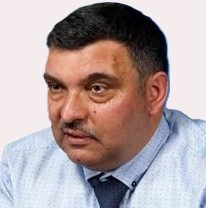A Rainbow Labour Market – Labour shortages and the recourse to migrant workers in Central and Eastern Europe
Over the past 25 years, Central and Eastern Europe have experienced significant labor shortages due to the migration of workers to Western Europe in search of better opportunities. This exodus, driven by the restructuring or closure of state-owned enterprises, has left these countries struggling to meet labor demands despite economic growth fueled by lower costs and EU funding. To address the shortage, these nations have increasingly relied on migrant workers from outside Europe or the EU, leading to a shift towards more multicultural societies. This raises questions about their readiness to manage this diversity, the impact on labor markets and economies, the role of the Ukraine crisis, and whether it might be more effective to attract native workers back from Western Europe.
To the issues we are listing below as well as to many others related we will try to give an answer during section:
- Effects of labour shortages and the inflow of migrant workers from outside Europe on markets in Central and Eastern Europe; focus on Romania;
- Who are the migrant worker – Will they attempt to stay; Profiling and analyzing processes of recruitment, employment and retainment;
- Migrant workers vs Refugee workers – how does the war in Ukraine bear on the phenomenon.
- Isn’t it cheaper and better – Do costs of brining back native workers labouring abroad outweigh benefits? Different perspectives of a much talked but less acted upon issue;
- Too early on? The challenge of a multicultural (i.e.: Rainbow) labour market and society.
 Chair Cătălin GHINĂRARU
Chair Cătălin GHINĂRARU
Dr. Catalin Ghinararu is an economist by training with 32 years of experience in labour market, employment, social inclusion, social dialogue, European funds and social protection research and analysis. Ghinarau is based in Bucharest, Romania and has worked extensively in the frame of the SYSDEM, EEPO and currently the EELLN networks of DG Employment. He has also participated in numerous MLP exercises and is, since 2005, a member of the SkillsNet network of the CEDEFO Centre, including in the capacity of “country group expert”. Ghinarau has also worked and written for the OECD, the UNDP and the ILO, including the ILO-CEET office. Between 2009 and Ghinararu has acted as CEDEFOP-Refernet national coordinator for Romania. Since 2003 Ghinararu has participated in many Peer Review exercises on themes such as active employment measures, youth unemployment, skills governance, job counselling, measures for persons with disabilities, the use of impact analysis for the evaluation and assessment of active measures etc. He has been also a member (representing RO) in the ELGPN network between 2012 and 2015.Ghinararu is currently working for the National Labour Research Institute of Romania as a scientific secretary and senior researcher. He is also currently teaching as an associate professor at the University of Bucharest, the faculties of Public Administration and Business and Philosophy.
